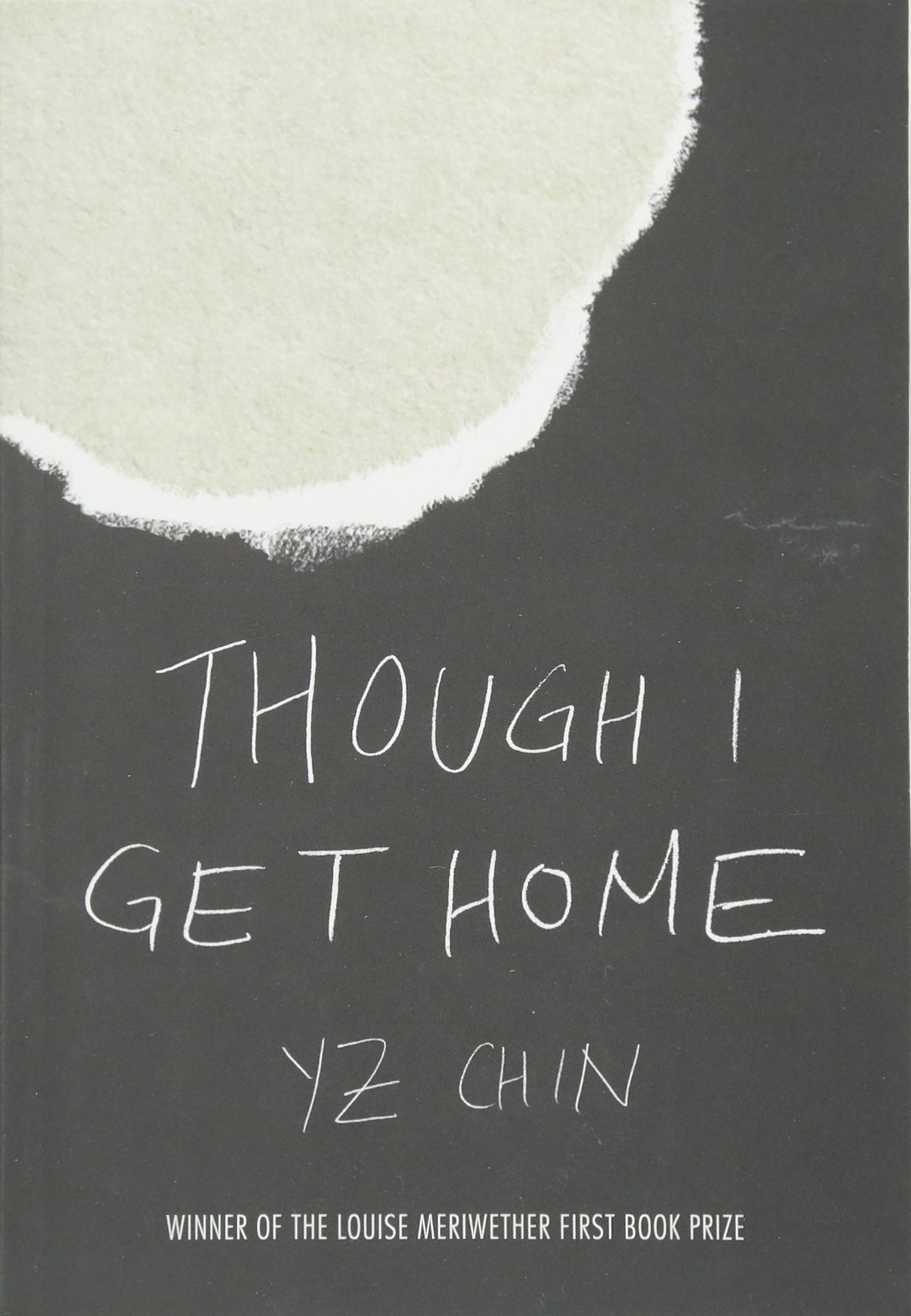#StopAsianHate Reading List
#StopAsianHate by donating, volunteering, speaking out, taking action, and reading (yes, reading!). At Feminist Press, we believe that books foster empathy, shift culture, and provide us with words when we are speechless. Here are just a few steps you can take today (via our friends at Madison Street Books) and a few books to add to your TBR.
DONATE
BYSTANDER INTERVENTION COURSE
Hollaback! in partnership with Asian Americans Advancing Justice
SPEAK OUT against racist language, images, and actions
READ works from AAPI writers and thinkers, like the books listed here:
Go Home! edited by Rowan Hisayo Buchanan
Asian diasporic writers imagine “home” in the twenty-first century through an array of fiction, memoir, and poetry. Both urgent and meditative, this anthology moves beyond the model-minority myth and showcases the singular intimacies of individuals figuring out what it means to belong.
Go Home! is published in collaboration with the Asian American Writers’ Workshop. Established in 1991, AAWW is a national not-for-profit arts organization devoted to the creating, publishing, developing and disseminating of creative writing by Asian Americans through a New York events series and online editorial initiatives.
We Too: Essays on Sex Work and Survival, edited by Natalie West, with Tina Horn
This collection of narrative essays by sex workers presents a crystal-clear rejoinder: there’s never been a better time to fight for justice. Responding to the resurgence of the #MeToo movement in 2017, sex workers from across the industry—hookers and prostitutes, strippers and dancers, porn stars, cam models, Dommes and subs alike—complicate narratives of sexual harassment and violence, and expand conversations often limited to normative workplaces.
Writing across topics such as homelessness, motherhood, and toxic masculinity, We Too: Essays on Sex Work and Survival gives voice to the fight for agency and accountability across sex industries. With contributions by leading voices in the movement such as Melissa Gira Grant, Ceyenne Doroshow, Audacia Ray, femi babylon, April Flores, and Yin Q, this anthology explores sex work as work, and sex workers as laboring subjects in need of respect—not rescue.
A World Between by Emily Hashimoto
In 2004, college students Eleanor Suzuki and Leena Shah meet in an elevator. Both girls are on the brink of adulthood, each full of possibility and big ideas, and they fall into a whirlwind romance. Years later, Eleanor and Leena collide on the streets of San Francisco. Although grown and changed and each separately partnered, the two find themselves, once again, irresistibly pulled back together.
Emily Hashimoto’s debut novel perfectly captures the wonder and confusion of growing up and growing closer. Narrated in sparkling prose, A World Between follows two strikingly different but interconnected women as they navigate family, female friendship, and their own fraught history.
Arid Dreams by Duanwad Pimwana, translated by Mui Poopoksakul
In thirteen stories that investigate ordinary and working-class Thailand, characters aspire for more but remain suspended in routine. They bide their time, waiting for an extraordinary event to end their stasis. A politician’s wife imagines her life had her husband’s accident been fatal, a man on death row requests that a friend clear up a misunderstanding with a sex worker, and an elevator attendant feels himself wasting away while trapped, immobile, at his station all day.
With curious wit, this collection offers revelatory insight and subtle critique, exploring class, gender, and disenchantment in a changing country.
Apsara Engine by Bishakh Som
The eight delightfully eerie stories in Apsara Engine are a subtle intervention into everyday reality. A woman drowns herself in a past affair, a tourist chases another guest into an unforeseen past, and a nonbinary academic researches postcolonial cartography. Imagining diverse futures and rewriting old mythologies, these comics delve into strange architectures, fetishism, and heartbreak.
Painted in rich, sepia-toned watercolors, Apsara Engine is Bishakh Som’s highly anticipated debut work of fiction. Showcasing a series of fraught, darkly humorous, and seemingly alien worlds—which ring all too familiar—Som captures the weight of twenty-first-century life as we hurl ourselves forward into the unknown.
Black Box by Shiori Ito, translated by Allison Markin Powell
In 2015 an aspiring young journalist named Shiori Ito charged prominent reporter Noriyuki Yamaguchi with rape. After meeting up for drinks and networking, Ito remembers regaining consciousness in a hotel room while being assaulted. But when she went to the police, Ito was told that her case was a “black box”—untouchable and unprosecutable.
Upon publication in 2017, Ito’s searing account foregrounded the #MeToo movement in Japan and became the center of an urgent cultural and legal shift around recognizing sexual assault and gender-based violence. As international outlets covered every step of her story—even documenting it in the BBC film Japan’s Secret Shame—this book launched a societal reckoning. At the end of 2019, Ito won a civil case against Yamaguchi.
With careful and quiet fury, Black Box recounts a broken system of repression and violence—but it also heralds the beginning of a new solidarity movement seeking a more equitable path toward justice.
Fault Lines by Meena Alexander
Passionate, fierce, and lyrical, Fault Lines follows one woman’s evolution as a writer at home—and in exile—across continents and cultures. Meena Alexander was born into a privileged childhood in India and grew into a turbulent adolescence in the Sudan, before moving to England and then New York City. With poetic insight and devastating honesty, Alexander explores how trauma and recovery shaped the entire landscape of her memory: of her family, her writing process, and her very self.
This new edition, published on the two-year anniversary of Alexander’s passing in 2018, features a new commemorative afterword by Gaiutra Bahadur.
The Feminist Porn Book, edited by Tristan Taormino, Celine Parreñas Shimizu, Constance Penley, and Mireille Miller-Young
The Feminist Porn Book weaves together writing by producers, actors, consumers, and scholars of feminist pornography, investigating not only how feminists understand pornography but also how feminists “do” porn—that is, direct, act in, produce, and consume one of the world’s most lucrative and growing industries.
With original contributions by Susie Bright, Candida Royalle, Betty Dodson, Nina Hartley, Buck Angel, Lynn Comella, Jane Ward, Ariane Cruz, Kevin Heffernan, and more, The Feminist Porn Book updates the arguments of the porn wars of the 1980s, which sharply divided the women’s movement, and identifies pornography as a form of expression and labor in which women and racial and sexual minorities produce power and pleasure.
Though I Get Home by YZ Chin
In these stories, characters navigate fate via deft sleights of hand: a grandfather gambles on the monsoon rains, a consort finds herself a new assignment, and a religious man struggles to keep his demons at bay. Central to the book is Isabella Sin, a small-town girl—and frustrated writer—transformed into a prisoner of conscience in Malaysia’s most notorious detention camp.
YZ Chin is the winner of the Louise Meriwether First Book Prize, an initiative begun by the Feminist Press and TAYO Literary Magazine to lift up women and nonbinary writers of color. Called “complex and intimate” by prize judge Ana Castillo, this debut examines the tension between individual motivation and globalizing circumstance.
Tastes Like War by Grace M. Cho
Grace M. Cho grew up as the daughter of a white American merchant marine and the Korean bar hostess he met abroad. They were one of few immigrants in a xenophobic small town during the Cold War, where identity was politicized by everyday details—language, cultural references, memories, and food. When Grace was fifteen, her dynamic mother experienced the onset of schizophrenia, a condition that would continue and evolve for the rest of her life.
Part food memoir, part sociological investigation, Tastes Like War is a hybrid text about a daughter’s search through intimate and global history for the roots of her mother’s schizophrenia. In her mother’s final years, Grace learned to cook dishes from her mother’s childhood in order to invite the past into the present, and to hold space for her mother’s multiple voices. And over these shared meals, Grace discovered not only the things that broke the brilliant, complicated woman who raised her but also the things that kept her alive.
Among the White Moon Faces by Shirley Geok-lin Lim
With insight, candor, and grace, Shirley Geok-lin Lim recalls her path from her poverty-stricken childhood in war-torn Malaysia to her new and exciting yet uncertain womanhood in America. Grappling to secure a place for herself in the United States, she is often caught between the stifling traditions of the old world and the harsh challenges of the new. But throughout her journey, she is sustained by her “warrior” spirit, gradually overcoming her sense of alienation to find a new identity as an Asian American woman: professor, wife, mother, and above all, an impassioned writer.
In Among the White Moon Faces, Lim offers a memorable rendering of immigrant women’s experience and a reflection upon the homelands we leave behind, the homelands we discover, and the homelands we hold within ourselves.
WSQ: Asian Diasporas, edited by Lili Shi and Yadira Perez Hazel
This issue of the award-winning academic journal decenters the Global North. It foregrounds gender in varied inquiries of Asian diasporas as comparative times and spaces. Scholars engage interdisciplinary approaches to examine the under-visited Asian diasporas, against the dominant narratives of identity, agency, migration, settlement, and Black-and-White notions of race.













